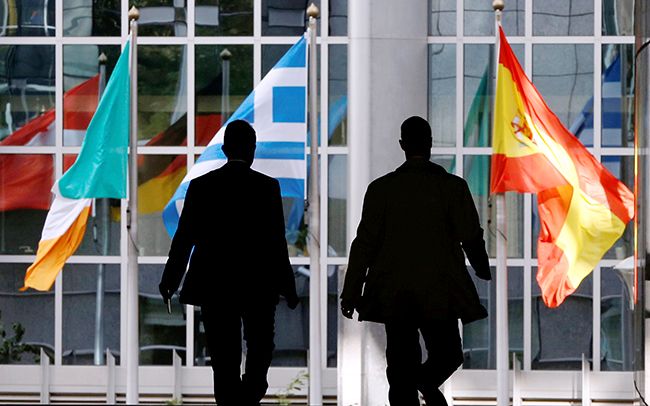Pragmatic times
Ukrainian business getting prepared for FTA realities, facing Russia’s response
There is a change of tone in Ukraine-Russia’s trade cooperation dialog. Whereas previously Russia kept threatening Ukraine with losing what was left of its economy, after signing the FTA, now Ukraine can “topple the Customs Union after joining it,” says Vladimir Zharikhin, deputy director, Institute of CIS Countries (Moscow).
In Russia these days, statements concerning Ukraine can be made only when approved “upstairs.” What was the reason behind the abovementioned one? Was that because Moscow had come to its senses and recognized Ukraine’s right to make its own national choice? The game on Ukraine’s Eurasian-European chessboard is underway, with the [Vilnius] summit date getting closer, along with the ratification [of the FTA] by 28 EU member countries. Most likely, that was [Moscow’s] response to Europe joining the game and its official support of Ukraine’s EU-integration policy.
Russia’s pressure on Eastern Partnership countries, in conjunction with the Association Agreement, was on the European Parliament’s agenda, and Stefan Fuele, European Commissioner for Enlargement and European Neighborhood Policy, said EU regulations were known to have often been accepted by the international community, that they were absolutely compatible and identical to those of the WTO, and that the Customs Union was in the process of adopting those European standards. Brussels, in turn, would work on making the European and the Customs Union’s structures compatible, for the purpose of economic integration. This compatibility, Stefan Fuele explained, is the key to EU-Russia partnership and modernization, adding that these standards are getting increasingly acceptable to the Customs Union.
Stefan FUELE: “AA/DCFTAs are not conceived at Russia’s expense. On the contrary, Russia will also benefit greatly from the integration of the Eastern Partnership countries into the wider European economy. Our vision is that these agreements should contribute in the long term to the eventual creation of a common economic space from Lisbon to Vladivostok, based on WTO rules.”
Stefan Fuele declared: “Let me emphasize that AA/DCFTAs are not conceived at Russia’s expense. On the contrary, Russia will also benefit greatly from the integration of the Eastern Partnership countries into the wider European economy. Our vision is that these agreements should contribute in the long term to the eventual creation of a common economic space from Lisbon to Vladivostok, based on WTO rules. So we encourage our partners to deepen their ties with Russia, as we do ourselves, but in a way which is compatible with AA/DCFTA obligations. The European Union is ready to work with its neighbors to find ways to promote greater regulatory convergence between the EU and members of the Customs Union. The last thing we want to see is a protectionist wall cutting our continent in two. In today’s ever-more-competitive global economy, we cannot afford to waste our efforts on a regional geopolitical rivalry…”
All pros and cons considered, Fuele sees no insurmountable obstacles.
He is echoed by Ukrainian businessmen who want to live to see an end to trade wars [with Russia]. Dmytro Firtash, head of the Employers’ Association of Ukraine, addressed an annual meeting of the International Organization of Employers of Europe and Central Asia: “Businesses in Ukraine, Belarus, Russia, Kazakhstan, elsewhere in Europe, are facing market problems because our markets are interrelated. We can see today that these problems stem not only from Ukraine, but also from Europe and the Customs Union.”
He told The Day later: “We have to figure out the main problem, namely the differences between the Customs Union and WTO, and what has to be done to eliminate these differences. We must not have Europe, Russia, other CU countries, and Ukraine placed in a situation where the [final] choice has to be made. Our main task is to keep the markets ticking… The economy must sustain no losses. This is our stand in the first place. By losing some or other markets, the EU, CU, and Ukraine would lose job placements and budget revenues.”
Reliable information sources have it that Russian and Ukrainian businessmen came to terms during the forum, including the formation of a joint task force.
According to Yevhen Kopatko, analyst with Research&Branding Group, Russia has lost the information war with Ukraine: “Little has been said in favor of the Customs Union as an attractive [political] project, so this is a major system error.”
Analysts agree that Russia has started soft-pedaling its politics, among other things in regard to Ukraine. The Kremlin leadership realizes that Ukraine will become a member of the European Union, and that the signing of the FTA papers means that all trade and customs procedures will have to be negotiated on a business, rather than political, level.






